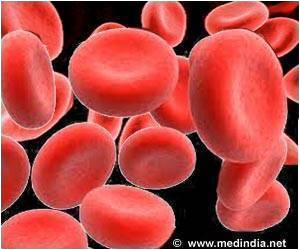
The study (abstract #355) evaluated a total of 1,022 children averaging 10 years old at trial sites nationwide, led by Alan Gamis, MD, MPH, Associate Division Director, Section of Oncology at Children's Mercy Hospital in Kansas City. It will be highlighted in an oral presentation Monday, Dec. 9, at the American Society of Hematology annual meeting in New Orleans.
"Chemotherapy has limits. Particularly in children, increasing doses further can become too toxic for the patient while still not achieving the desired effect on the cancer," said Dr. Gamis. "This study is significant because it shows for the first time that this targeted treatment can augment the effects of chemotherapy in children and effectively reduce their risk of relapse. We found it was most effective in the patients most at risk."
Gemtuzumab was removed from the U.S. market in 2010 because the U.S. Food and Drug Administration determined the potential risks of the drug outweighed the potential benefits. Recent research with the compound has raised questions about whether that action may have been premature. This data supports recent findings in adults with AML that gemtuzumab reduced their risk of relapse when added to standard chemotherapy.
"This could be an important treatment option for critical patients," said Dr. Gamis. "Gemtuzumab appears to have a real impact in increasing the likelihood of long-term survival in high-risk patients."
In this study, patients were treated with gemtuzumab or a standard treatment regimen. Compared with standard regimens, the addition of gemtuzumab was associated with better disease-free survival (61 vs. 55%) and reduced relapse risk (33 vs. 41%). It did not significantly improve overall survival (74 vs. 70%).
Advertisement













